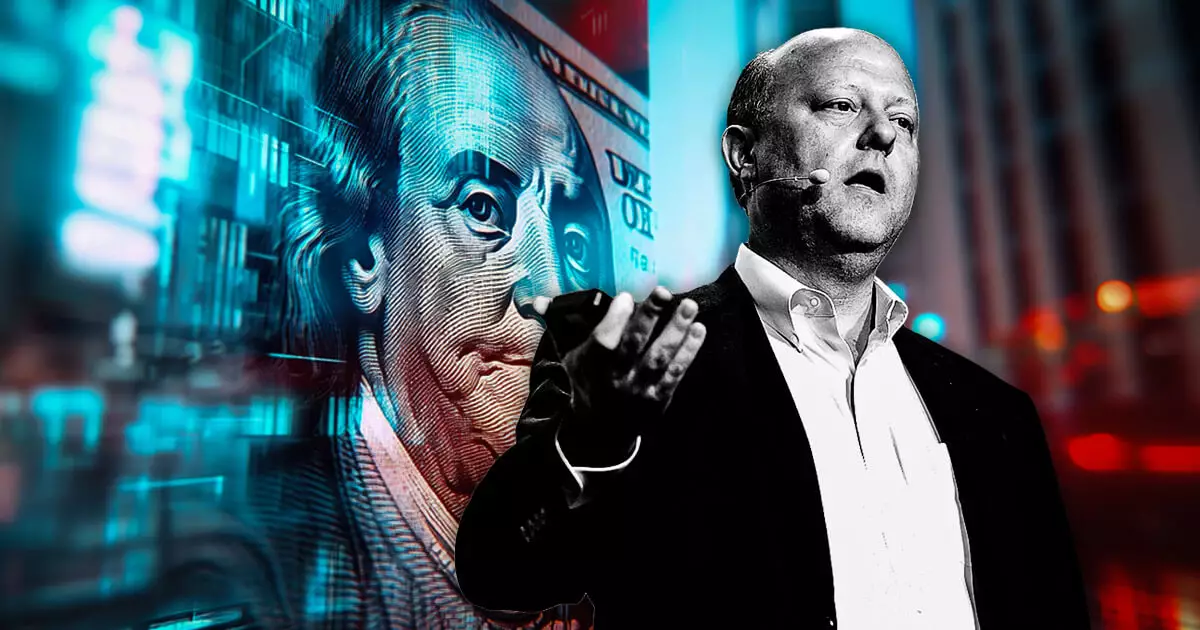In a landscape increasingly influenced by the rise of digital currencies, Jeremy Allaire, co-founder of Circle, has emphasized the pressing need for stablecoin issuers to register in the United States. This statement came during a Bloomberg interview on February 26, sparking crucial conversations about regulatory clarity as U.S. lawmakers begin to introduce new legislation surrounding digital assets. Allaire’s remarks highlight a pivotal moment where regulation is essential to ensure the stablecoin market operates within a defined legal framework.
Stablecoins, particularly those pegged to the U.S. dollar, serve as essential facilitators within the broader cryptocurrency ecosystem, acting as a bridge between traditional financial institutions and digital currencies. As their presence grows, so does the necessity for clear regulations that address the underlying concerns surrounding reserve backing, consumer protection, and potential financial stability risks.
Notably, the introduction of a bill by Senator Bill Hagerty from Tennessee aims to establish a federal framework to oversee stablecoin regulation. This legislative effort comes at a time when discussions about cryptocurrency policies are intensifying, especially as the Trump administration expresses support for advancing the U.S. as a frontrunner in the cryptocurrency space. If enacted, this bill could potentially set the legal groundwork that stablecoin issuers like Circle, with their USDC token—the second-largest stablecoin—would operate under.
However, while formal registration may offer much-needed oversight, it is also fraught with the risk of stifling innovation. Critics of stringent regulations argue that excessive legal constraints could diminish competition and hinder growth in an already globalized market. Allaire’s simultaneous push for a regulatory framework underscores a dual dilemma: the desire for stablecoins to have a concrete operational base while maintaining the agility and innovative spirit crucial to their development.
The dichotomy of regulation versus innovation is perhaps the most critical aspect of the ongoing debate surrounding stablecoins. While some lawmakers express concern about the potential risks associated with these digital assets, others advocate that well-regulated issuers could provide significant advantages, including enhanced transaction efficiency and increased innovation in the financial sector.
With stablecoins currently central to the operation of various decentralized finance (DeFi) applications and platforms, the ongoing discussions surrounding their regulation will undoubtedly shape the future dynamics of digital finance in the United States. The eventual outcomes of proposed legislation, whether it passes as-is or undergoes alterations, will represent a key moment not only for the crypto industry but also for policymakers navigating this evolving landscape.
As the conversation around stablecoin regulation progresses, the dual objectives of safeguarding financial stability while fostering a robust environment for innovation sit at the forefront. As Allaire’s call for U.S. registration resonates through legislative chambers, the future of stablecoins—and indeed, the cryptocurrency market at large—hangs in a delicate balance between regulation and freedom. The outcome of this pivotal moment could very well determine the trajectory of digital finance for years to come.















Leave a Reply